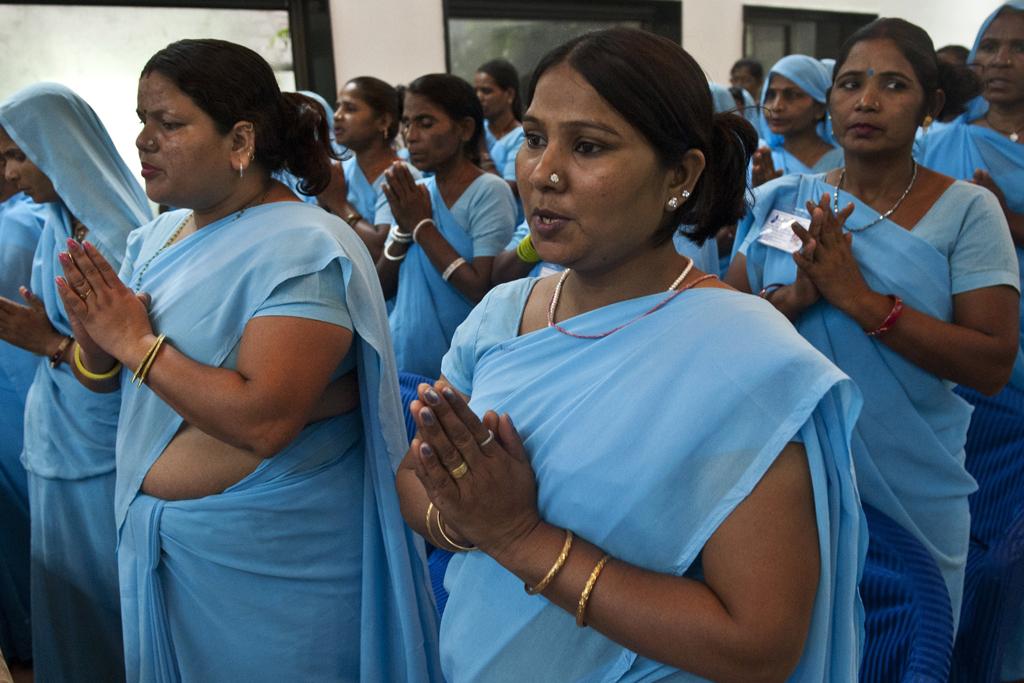In India, the lowest class still shovels other people’s feces
Manual scavengers from Alwar and Tonk of Rajasthan state offer prayers while celebrating “Freedom Day,” organized by the Sulabh International Social Service Organisation in New Delhi on June 7, 2012. India’s supreme court expressed concern at the delay in passing a bill that would ban manual scavenging.
The Indian Supreme Court expressed concern on Tuesday at the delay in passing a bill that would ban manual scavenging.
The bench told Attorney General G.E. Vahanvati, "They [manual scavengers] are marginalized and Parliament needs to take adequate steps to pass the bill. It had been over a year and half that the Additional Solicitor-General has been promising to do something. We need a proper reply," according to Indian newspaper The Hindu.
"Manual scavenging—or cleaning human waste from toilets—is only the most demeaning of the jobs that India's erstwhile untouchables, or Dalits, are forced to perform to earn a living," GlobalPost senior correspondent Jason Overdorf said, from New Delhi.
"Making manual scavenging illegal, and instituting measures to help those trapped in those jobs to find other work, is of course a necessary and much too tardy measure. But there are arguably more important ways in which India is working to help Dalits attain equal status—albeit none of them is working as well as it should."
"Most importantly, a program to reserve about a fifth of the seats in the country's universities and a fifth of government jobs for Dalits has helped many to escape the economic limitations of their caste—even if they still face social restrictions. But the result has been a deadly backlash against the oppressed group in many places, such as rural Haryana, where higher caste farmers resent the Dalits' rise."
The Prohibition of Employment as Manual Scavengers and their Rehabilitation Bill remained pending through three sessions of parliament, leading to the Supreme Court expressing its serious concern.
The Supreme Court was hearing a petition relating to the deaths of manual scavengers while cleaning manholes and sewer lines on Tuesday, The Times of India reported.
The Hindu reported that nearly 19 manual scavengers died in the Indian state of Tamil Nadu alone.
AG Vahanvati noted it took Indian states 19 years to ratify the Employment of Manual Scavengers and Construction of Dry Latrines (Prohibition) Act of 1993, according to The Times of India.
More on GlobalPost: India: Video Volunteers highlight fate of 'untouchables'
We want to hear your feedback so we can keep improving our website, theworld.org. Please fill out this quick survey and let us know your thoughts (your answers will be anonymous). Thanks for your time!
